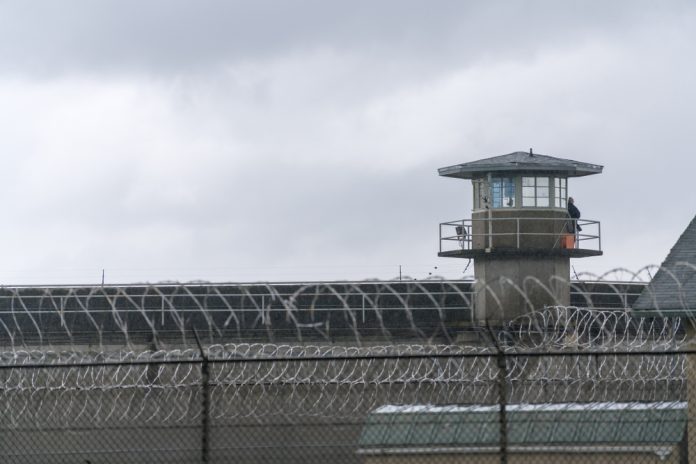
Former California corrections officer Avelino Ramirez faces up to 20 years in prison after admitting he planted drugs and weapons in prisons to fraudulently collect overtime pay and secure promotions.
Key Takeaways
- Avelino Ramirez, 52, pleaded guilty to federal wire fraud for planting contraband at San Quentin and Vacaville prisons
- The former K-9 sergeant planted drugs, phones, and weapons to boost his career and collected $8,200 in fraudulent overtime
- Ramirez mixed narcotics with household items like salt, sugar, and lawn trimmings to conceal their origins
- Despite the serious nature of his crimes, prosecutors have recommended probation rather than prison time
- Sentencing is scheduled for September 18, 2025, where he faces a maximum sentence of 20 years
Corrupt Officer’s Elaborate Scheme Exposed
In a shocking betrayal of public trust, former California corrections officer Avelino Ramirez has pleaded guilty to federal wire fraud charges after admitting he deliberately planted contraband in prisons to advance his career. The 52-year-old Vallejo resident orchestrated an elaborate scheme while working as a K-9 officer at San Quentin State Prison and later as a sergeant at the California Medical Facility in Vacaville. His fraudulent activities spanned from October 2021 to February 2024, during which he planted methamphetamine, cannabis, cocaine, tobacco, cell phones, and weapons in common prison areas.
Ramirez’s deception went beyond simply planting contraband. Court documents reveal he mixed narcotics with everyday household items such as salt, sugar, and lawn trimmings to obscure their origin and make detection more difficult. This calculated approach allowed him to create the illusion of being exceptionally effective at his job, leading to his promotion to sergeant in 2022. The fraud was so successful that Ramirez was credited with finding 20 of the 28 contraband packages discovered at San Quentin in 2022, with discovery rates suspiciously spiking after his transfer to Vacaville.
Financial Motivation Behind Criminal Conduct
The primary motivation behind Ramirez’s criminal behavior appears to have been financial gain and career advancement. By falsely claiming overtime pay for “discovering” the contraband he himself had planted, Ramirez fraudulently collected approximately $8,200 in overtime earnings. This systematic abuse of his position not only defrauded taxpayers but also potentially endangered prison staff and inmates by introducing dangerous contraband into the facilities.
The case highlights a disturbing vulnerability in prison security systems and oversight mechanisms. Ramirez exploited his position of trust as a K-9 officer – a role specifically designed to detect and prevent contraband – to instead introduce prohibited items into the prison environment. His actions raise serious questions about the supervision and accountability measures in place within California’s correctional facilities, particularly regarding officers with specialized contraband detection responsibilities.
Legal Consequences and Sentencing Outlook
Ramirez pleaded guilty on June 13, 2025, to one count of wire fraud. Under federal sentencing guidelines, he faces a maximum penalty of 20 years in prison and a fine of up to $250,000. As part of his plea agreement, Ramirez has agreed to repay the $8,200 in illicit overtime he collected through his fraudulent scheme. Despite the serious nature of his crimes, federal prosecutors have recommended probation rather than prison time – a surprisingly lenient recommendation given the breach of public trust involved.
“My client has expressed deep remorse for his actions and did not falsely implicate any inmates during this scheme,” Ramirez’s attorney stated following the guilty plea. This statement appears aimed at mitigating the damage caused by Ramirez’s actions, suggesting that while he planted contraband, he didn’t compound his crimes by falsely accusing inmates of possessing the items he planted.
Systemic Failures and Accountability Questions
The case exposes troubling gaps in prison security protocols that allowed a single officer to manipulate the system for years without detection. The fact that Ramirez was able to introduce drugs, weapons, and other contraband into two different correctional facilities over a period of more than two years suggests a systemic failure of oversight. His unusually high “success rate” in finding contraband – accounting for over 70% of discoveries at San Quentin in 2022 – should have triggered closer scrutiny from supervisors.
This incident also raises questions about incentive structures within correctional facilities that may inadvertently encourage fraudulent behavior. When officers receive overtime pay and career advancement based primarily on contraband discovery metrics, without adequate verification processes, the system becomes vulnerable to manipulation. Taxpayers ultimately bear the cost of such fraud, both through direct financial losses and through the undermining of prison security measures designed to protect staff and rehabilitate inmates.
Sentencing and Future Implications
U.S. District Judge William Orrick III will determine Ramirez’s fate at a sentencing hearing scheduled for September 18, 2025. While prosecutors have recommended probation, the judge has full discretion to impose a sentence up to the maximum 20 years allowed by law. The outcome of this case may set an important precedent for how the justice system handles corruption within its own ranks, particularly when that corruption potentially endangers institutional security.
The Ramirez case should prompt a thorough review of contraband detection procedures and oversight mechanisms within California’s prison system. Implementing stronger verification protocols, rotating K-9 officers between facilities more frequently, and establishing independent reviews of contraband discoveries could help prevent similar schemes in the future. Until such reforms are implemented, the integrity of prison security operations will remain vulnerable to exploitation by those entrusted with maintaining it.
Sources:
Former guard planted contraband in prisons to find it, prosecutors say – SF Chronicle
California correctional K9 officer admits planting contraband at San Quentin, Vacaville – CBS News
Former Calif. corrections officer pleads guilty to planting prison contraband – Corrections1












